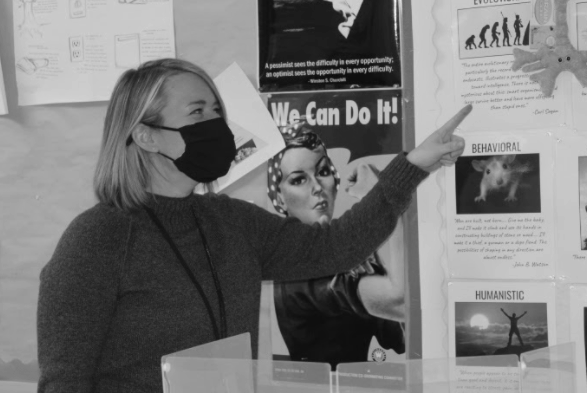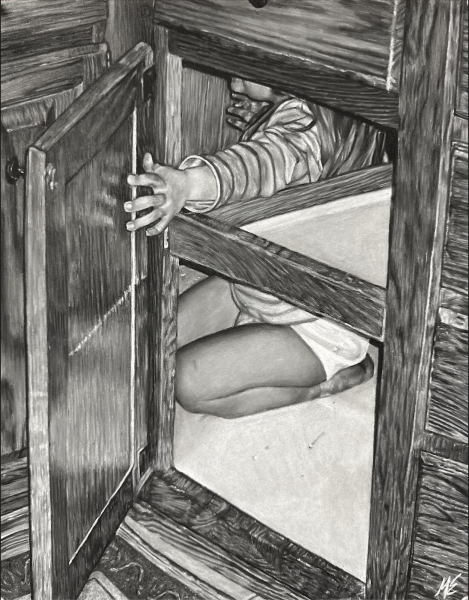Men are from Earth; Women are from Earth

As a teacher of psychology, Melissa Blahnik has gained insight to how critical it is for society to value the facts about different people so that it can limit prejudice that is based in fallacy. Blahnik scrutinizes how significant it is to spread information that is rooted in fact so that people can see that many of the discriminatory beliefs that degrade other minority groups often originate from no factual basis. “From my studies throughout being someone who educates and who has been educated, I have found that so many of the beliefs that individuals hold as factual are truly false, and it is so important to make sure to spread information that lifts up others instead of information that reduces their validity,” Blahnik explained.
Countless examples from popular culture, religious texts and political conservations reinforce the ideas that there are extreme psychological, intellectual, and trait oppositions between the sexes; however, men and women have been found to share many qualities in common- and the contrasts between them are not always so black and white.
When comparing the average scores of the ‘Big Five’ personality traits between men and women, a research study by the Frontiers in Psychology foundation states that “while the distributions of traits for men and women are largely overlapping, we are optimistic that any difficulties in communication between men and women are due primarily to cultural norms that are amenable to change, rather than to differences in basic personality traits, which are much more difficult to change.”
As a teacher of psychology and the only female in Homestead’s social studies department, Melissa Blahnik has been astonished by the facts she has learned about the human condition, and she shares the significant lessons her curriculum and life experiences have taught her about herself, the people around her, and the falsehoods about the genders that society takes as reality. One of the greatest things she has learned from psychological research has been the myths that it has debunked about the oppositions between the genders; “We always hear ‘Men are from Mars, Women are from Venus’… despite growing up having the perception that men and women are so different; I think psychology is wonderful in that it gives us the information that is contrary to that, proving we have far more similarities than differences,” Blahnik said.
Throughout previous years in time, there have been many instances in which young women had male authority figures who were inclined to quiet their female counterparts in attempts to reduce them to beings without faith in their abilities and futures; however, Blahnik spoke about the biggest role models in her life thus far, explaining that oddly, most of them were men.
“My life has been and still is surrounded by men, my department is all men, I have all men at home, some of my biggest influences have been men, like my dad or some of my major social studies methods teachers,” Blahnik said. “The reason these male figures were so impactful in my life is because they encouraged me, listened to me, and didn’t censor me…they never made me feel like I was in the shadows.”
Blahnik’s experiences with men who uplifted her helped her retain a firm grasp on her confidence in her capacities for accomplishment, regardless of the disbelief from others and the barriers from society blocking her from her goals. She explained that the best advice she would give a young girl would be to ‘not have anybody tell you what you are capable of’.”
To this, she explains a quote that has changed her life by Theodore Roosevelt called “The Man in the Arena.” Blahnik shares how this quote has played a role in her self-belief and empowerment: “You shouldn’t be afraid of trying new things with the fear of failing and having other people judge you, it’s not the critic who counts, it’s the man or woman in the arena. The greatest thing would be that you were successful, if not you fail and try again, but at least you tried, daring greatly and showing vulnerability,” Blahnik said.

Sofia Grbic is currently a sophomore at Homestead high school. She has always had passions for creativity, learning, and adventure. She immensely enjoys...




